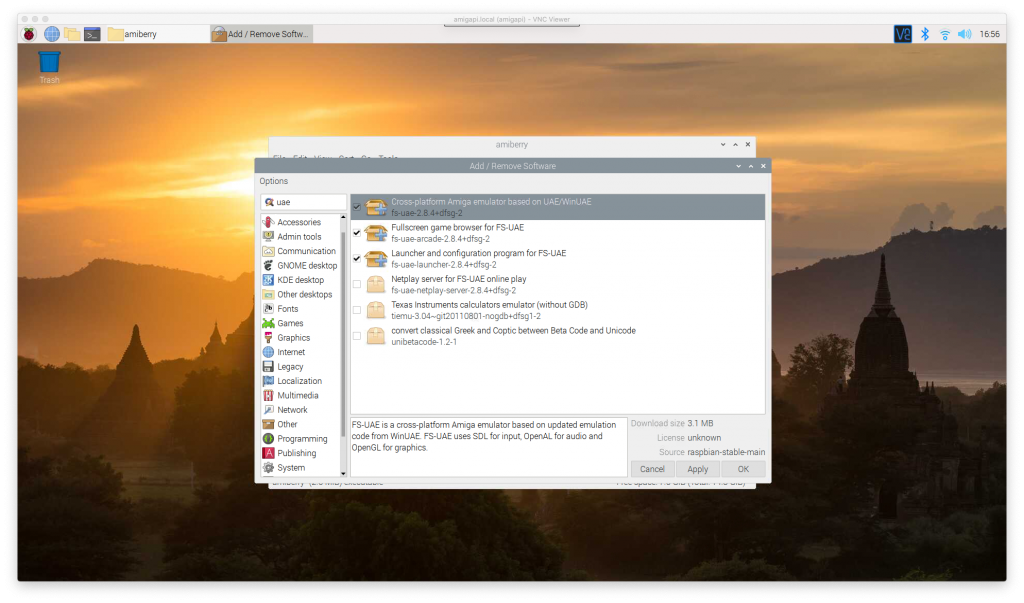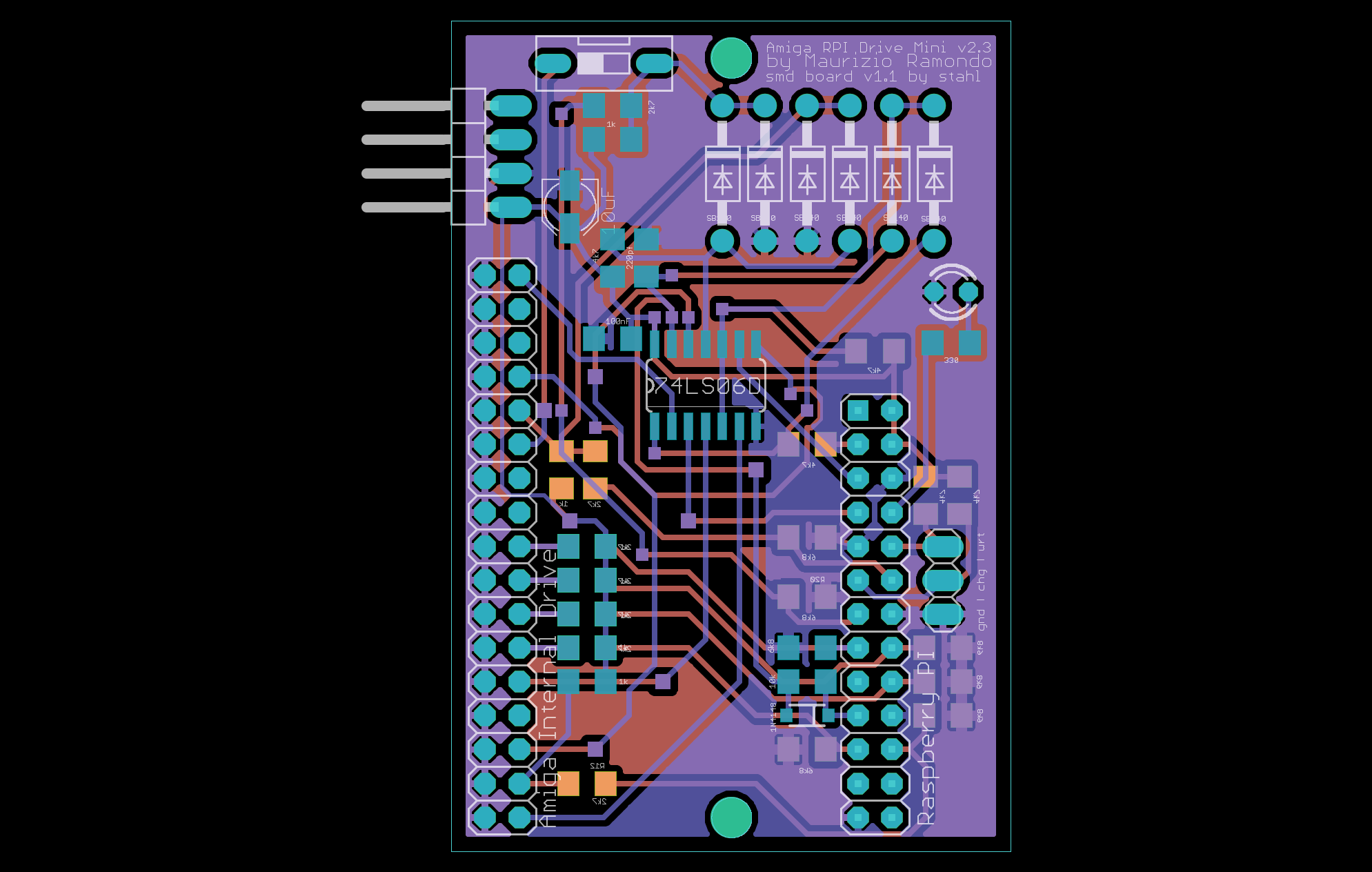

- #RASPBERRY PI AMIGA EMULATOR IMAGE HOW TO#
- #RASPBERRY PI AMIGA EMULATOR IMAGE INSTALL#
- #RASPBERRY PI AMIGA EMULATOR IMAGE ARCHIVE#
RetroPie feedback, support and guides can be found on the Amiga RetroPie WHDLoad group on Facebook.

Please check the version history on Github. Please open a new issue here and describe your idea/suggestion.
Great! Feedback always helps in improving things and it’s more than welcome. #RASPBERRY PI AMIGA EMULATOR IMAGE HOW TO#
I have an idea on how to make this better. We’re sorry about that! To do our best and fix it, it would be great if you could report it in detail, including the steps to recreate it, by opening a new issue here. You can check the documentation on how to use this feature in the official Wiki page: New feature: Amiberry now also supports WHDLoad games directly, and can load them using our own custom boot loader. Just set up your configuration from within the emulator and start having fun. You can use ADF disks, HDF hard file images, normal directories/files as virtual Amiga Hard drives, etc. If you’ve bought Amiga Forever, you can also use those ROMs, but remember to also copy the “rom.key” file in the same directory, as those are encrypted. You’ll need to bring your own Kickstart ROMs, as they are protected under copyright. Remember to set the flags to execute on it, if necessary (e.g. #RASPBERRY PI AMIGA EMULATOR IMAGE ARCHIVE#
Extract the archive and place the emulator executable where you want.Make sure you have all the dependencies installed in your system.Get the latest binary release from the Github project page:.Each stable release includes binaries as well.
#RASPBERRY PI AMIGA EMULATOR IMAGE INSTALL#
Note: If you’re running RetroPie, then Amiberry is already included! Just install it from the “RetroPie-Setup” menu.Īlready have a system you want to keep, but want the Amiberry goodness? No problem. This is needed for the initial installation at least, it’s optional after that. That can be either your board’s built-in Ethernet or a WiFi adapter. The faster the better, Amiga emulation is quite demanding. Odroid XU4, ASUS Tinkerboard, Pine64 RockPro64 etc.).
A Raspberry Pi or other supported ARM based device (e.g. If you like this project, you can help further development by donating any amount you can: ĭonations go towards getting new devices to port Amiberry to, covering some of the costs, keeping the motivation for the countless hours of work involved in the project, etc. It supports both 32-bit and 64-bit platforms. Additionally, you can of course install it on a standard Linux distro (e.g. You are welcome to join the project and help make Amiberry the best Amiga emulator for ARM devices! Visit the project page on Github for more.Īmiberry is already included in several popular distros (like RetroPie, DietPi, Amibian, The RetroArena, Batocera and others) and can be installed or upgraded from within their ecosystems. It’s an open-source project, build with the efforts of several people and based on previous work of others. Amiberry is an optimized Amiga emulator for ARM-based SoCs (such as the Raspberry Pi, Odroid XU4, ASUS Tinkerboard, etc.), that brings you the highest performance Amiga emulation. Be it a classic A500, A1200, CD32 or up to a high-end model equipped with a 68040 and a graphics card, we’ve got you covered.






 0 kommentar(er)
0 kommentar(er)
